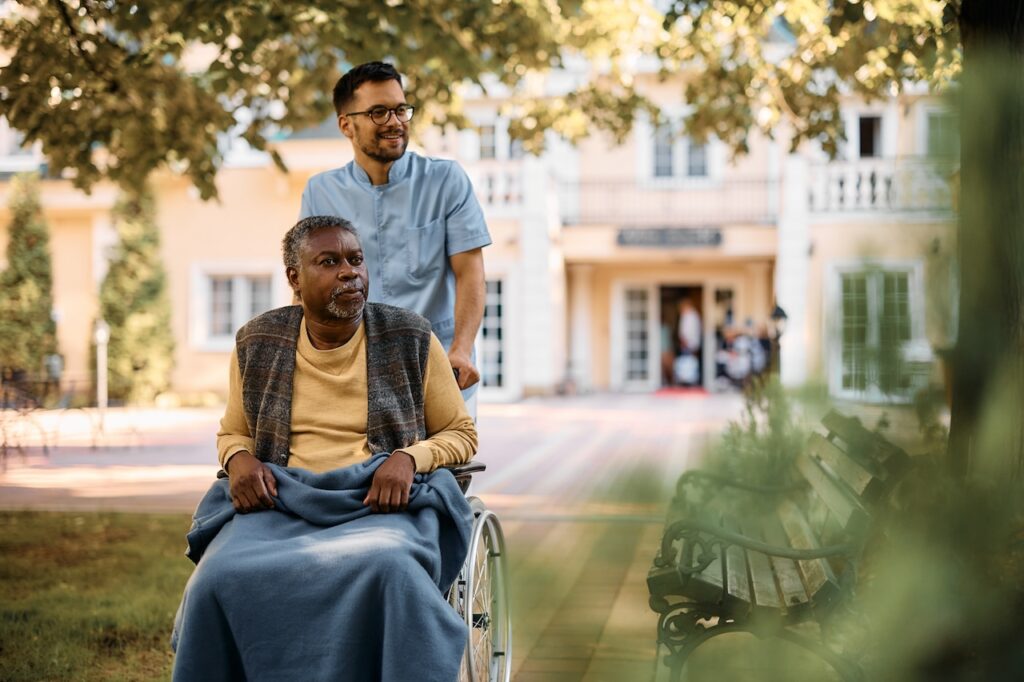Navigating a sepsis nursing home abuse case can be extremely stressful, overwhelming, and full of questions: What is septic shock? How long does it take to die from sepsis? What could have caused my family member to develop sepsis? Is the nursing home at fault? Do I even have a case?
We’re here to help address these so that you can face your sepsis case with confidence and regain justice for your loved one.
What Is Sepsis?
Sepsis is a condition where your body essentially overreacts to an infection. In addition to fighting the harmful bacteria, your immune system starts to attack and damage even the healthy parts of your body. This can lead to severe inflammation throughout tissue and organs and cause clotting in your blood vessels, which can dangerously reduce blood pressure.
Septic shock, the most advanced and most dangerous stage of sepsis, occurs when this decrease in blood pressure is too dramatic and severe.
How Long Does it Take to Die from Sepsis?
Sepsis is treatable, and many people survive cases that are caught and treated in the early stages. However, sepsis progresses very rapidly, and patients can quickly transition into septic shock if they’re not properly cared for. One study found that for every hour that sepsis isn’t treated, the chances of septic shock and fatality increase by 4–9%.
Once a patient progresses into septic shock, they can die in as quickly as 12 hours, depending on the treatment they receive and the severity of their case. People can survive septic shock when they receive the proper care, but even 30–40% of those who do will die.
This fast-paced development makes it essential to act quickly when treating patients with symptoms of sepsis.
What Causes Sepsis?
The main cause of sepsis is bacterial infections (although other types of infections can also result in sepsis if untreated), so the same situations and risk factors that contribute to infections also increase an individual’s chance of developing sepsis:
- Age: Patients over 65 have an increased risk of developing sepsis.
- Poor Hygiene: In nursing home abuse cases, this can include things like not changing diapers or bedding or not bathing residents regularly.
- Infrequent Movement & Poor Wound Care: Residents who are positioned poorly or aren’t moved frequently may develop bed sores that can cause them to go septic if not properly cared for.
- Pre-Existing Conditions: Individuals who have compromised immune systems, kidney or liver disease, diabetes, or other conditions that weaken their body’s defenses are more likely to contract infections and sepsis.
- Invasive Devices: Catheters, breathing and feeding tubes, stents, and similar devices can increase the risk of developing an infection and sepsis.
Since these risk factors are particularly common among nursing home residents, caretakers must be especially vigilant in caring for residents and addressing infections promptly to avoid any scares with sepsis.
How Can I Prepare My Sepsis Nursing Home Abuse Case?
Unfortunately, not all nursing home facilities administer proper care, and residents can suffer from sepsis incidents or even pass away from going into septic shock. If this has happened to a loved one, and you believe that they were denied sufficient care, it may be time to pursue a nursing home abuse case.
For these lawsuits, you must prove that the nursing home was responsible for the injuries, suffering, or death of the resident. You need physical evidence (photos, videos, medical records, eye-witness accounts, etc.) that they didn’t help residents change positions often enough, help them practice proper hygiene, treat wounds or other infections, take them to the hospital in time, etc.
If you believe your family member has been a victim of this kind of mistreatment, contact a trusted nursing home abuse lawyer. They can help you determine whether or not you have a case, assist in collecting evidence, and take care of the complicated legal processes so you can take care of yourself and your family.
Face Your Case with Confidence with PMP
With PMP, you don’t have to feel unprepared as you pursue your sepsis nursing home abuse case. Our expert lawyers are ready to help you answer key questions, build a case, and handle the complex legalities so you can focus on your family. You’ll always receive expert advice, personal attention, and our complete dedication.
Reach out to talk through your case with a representative.

